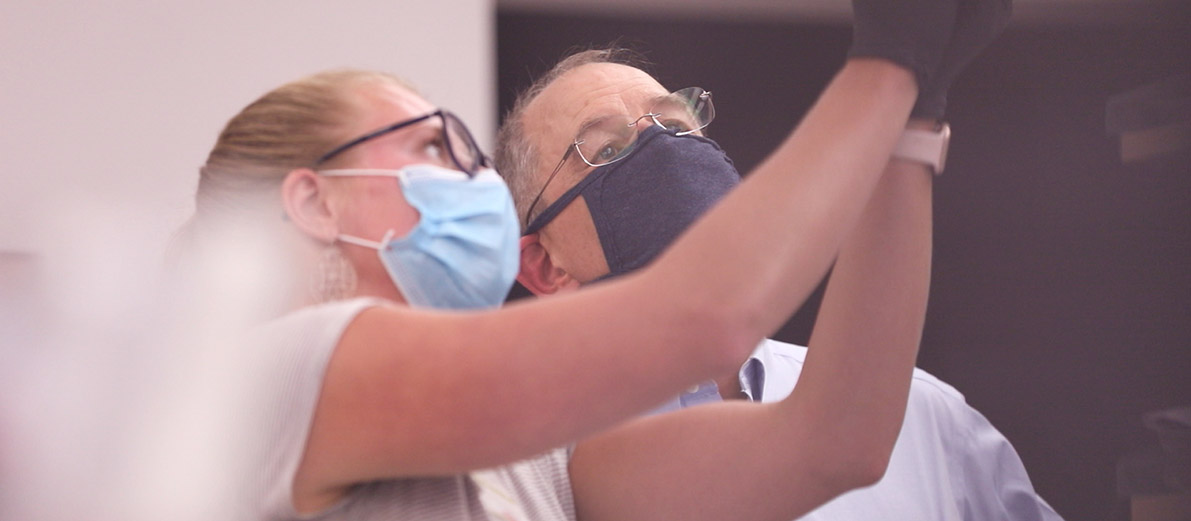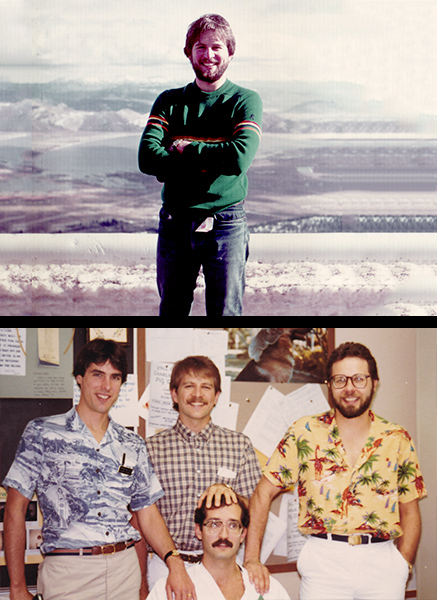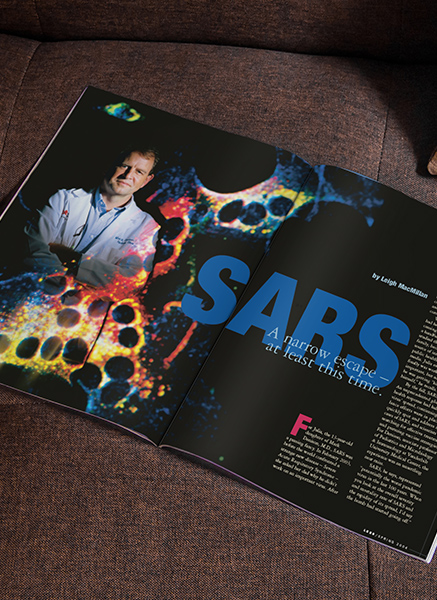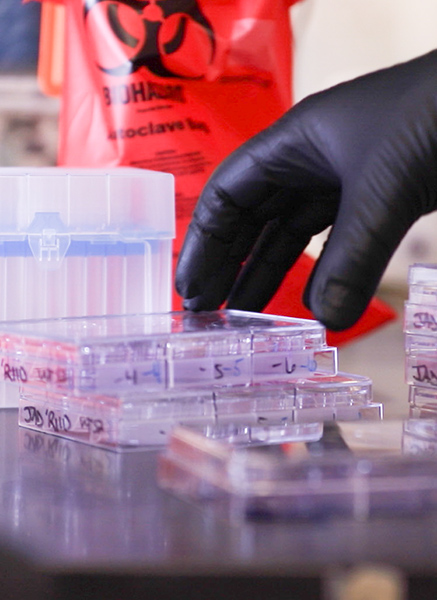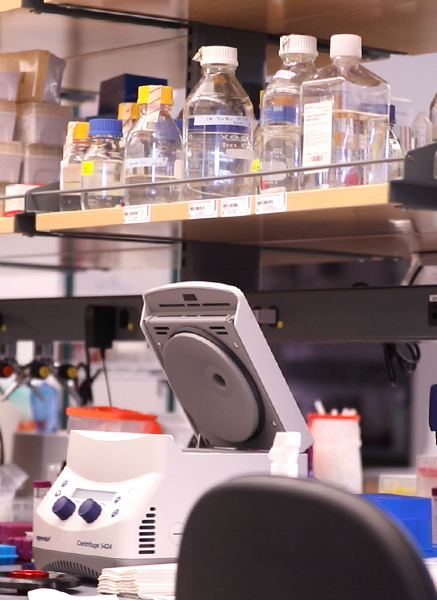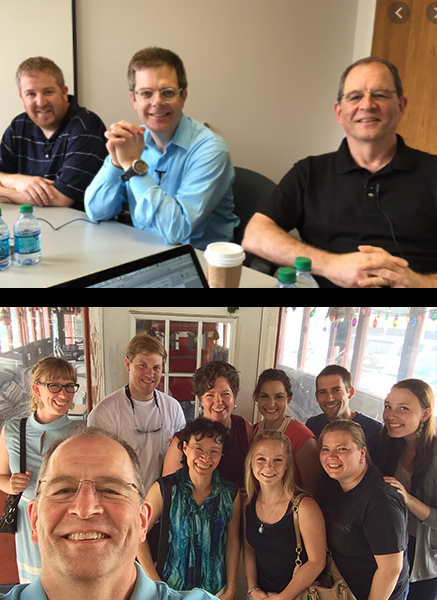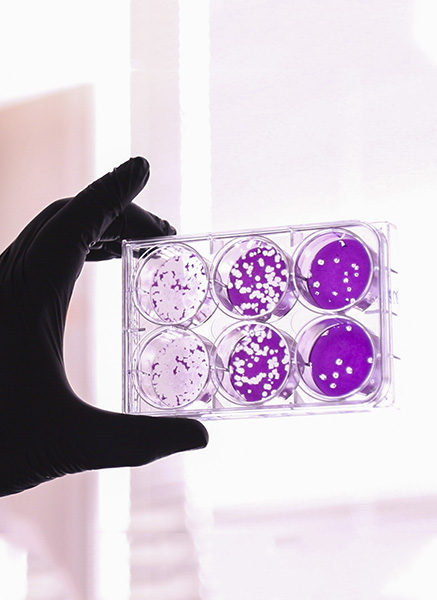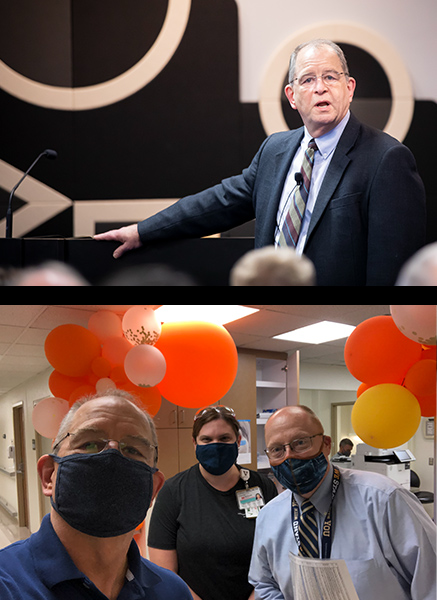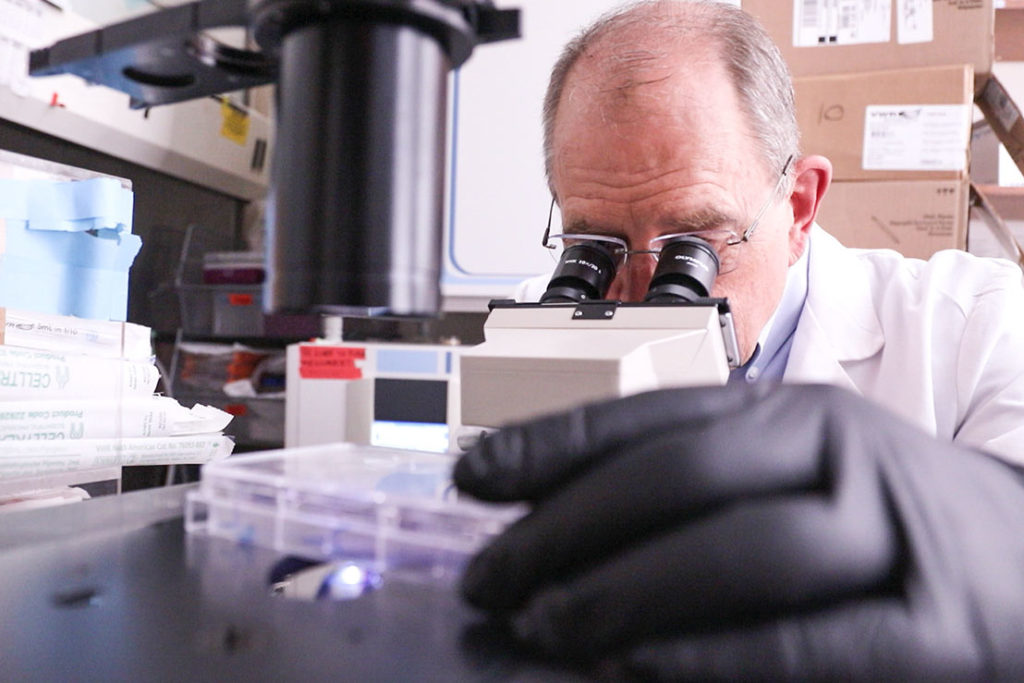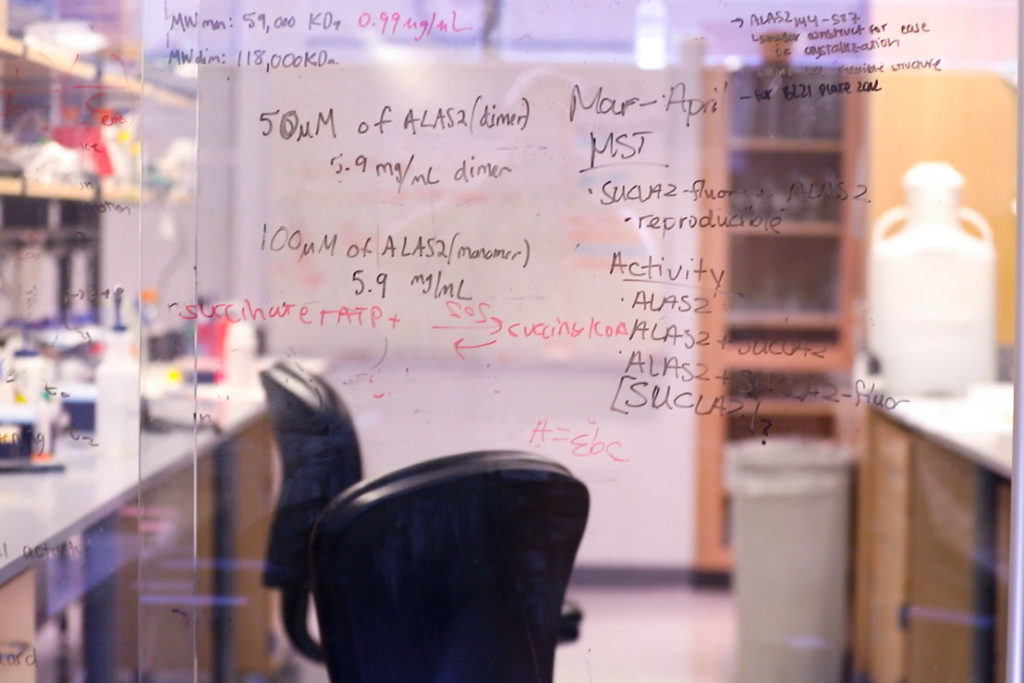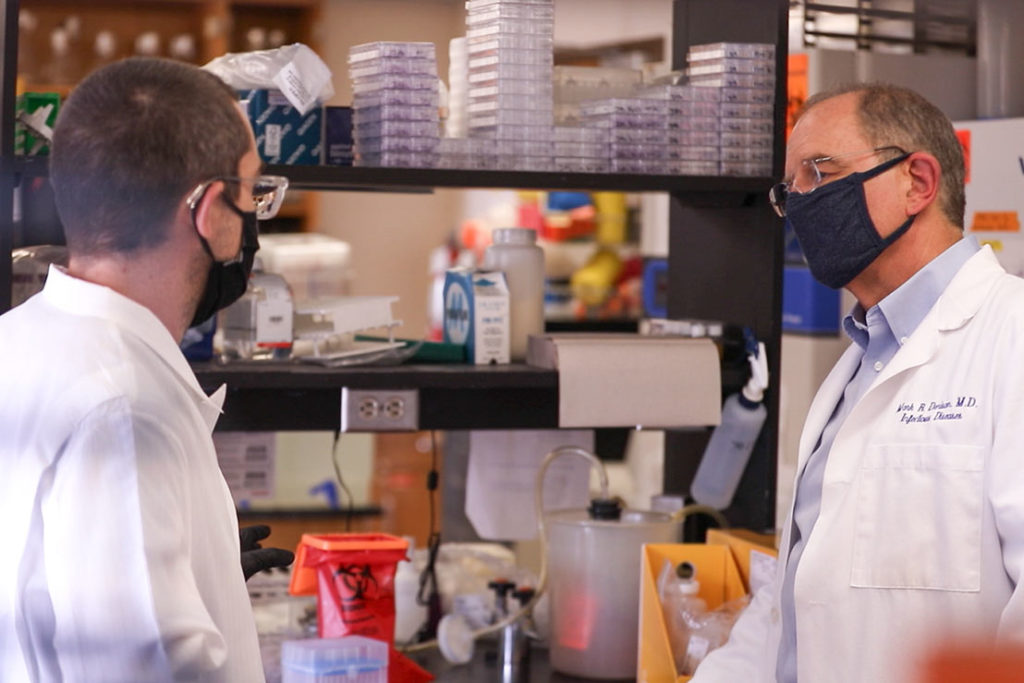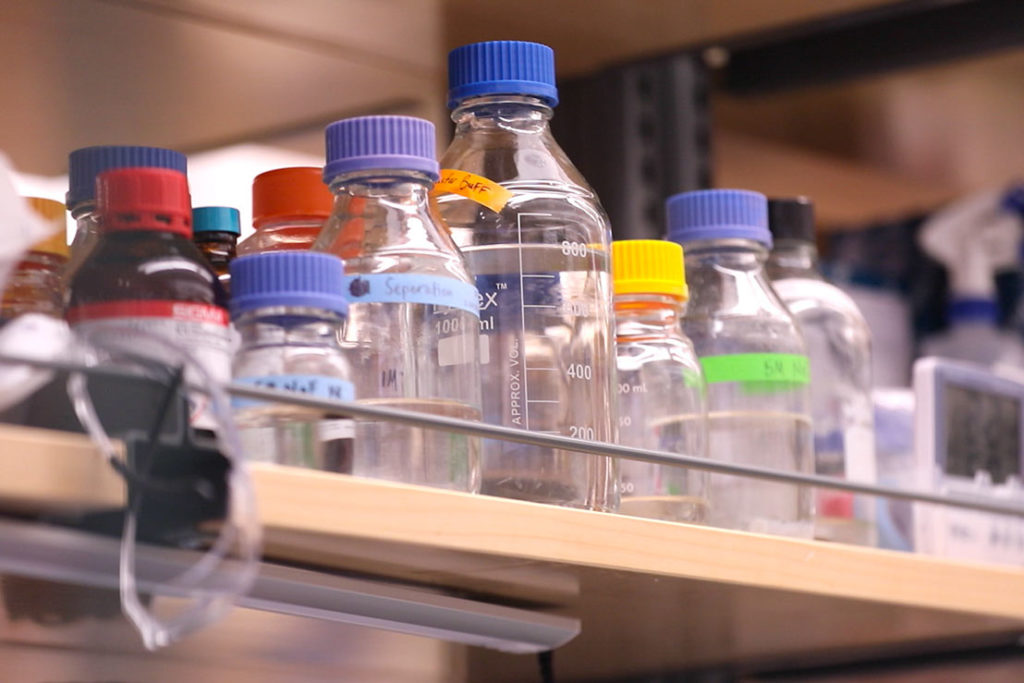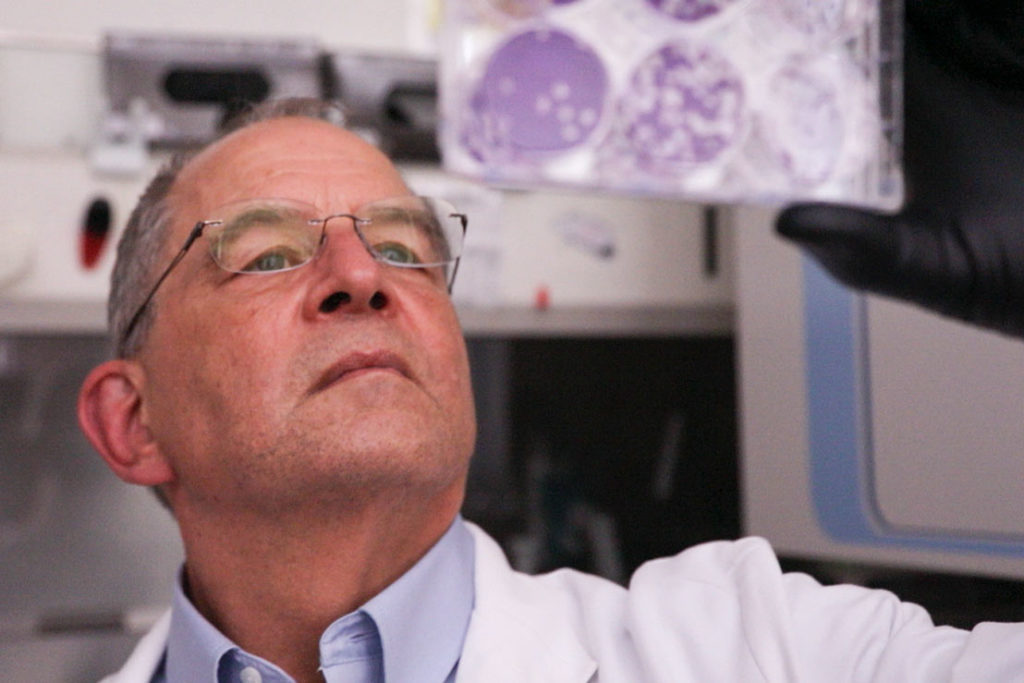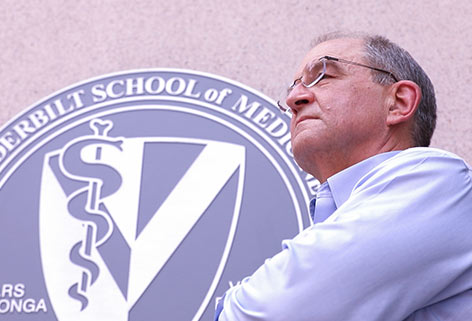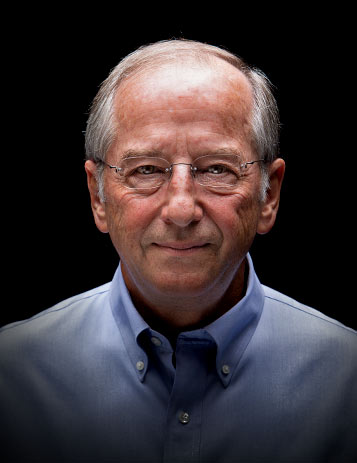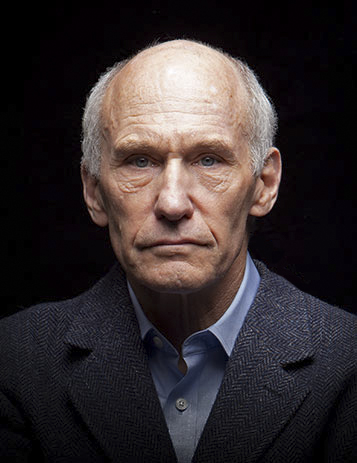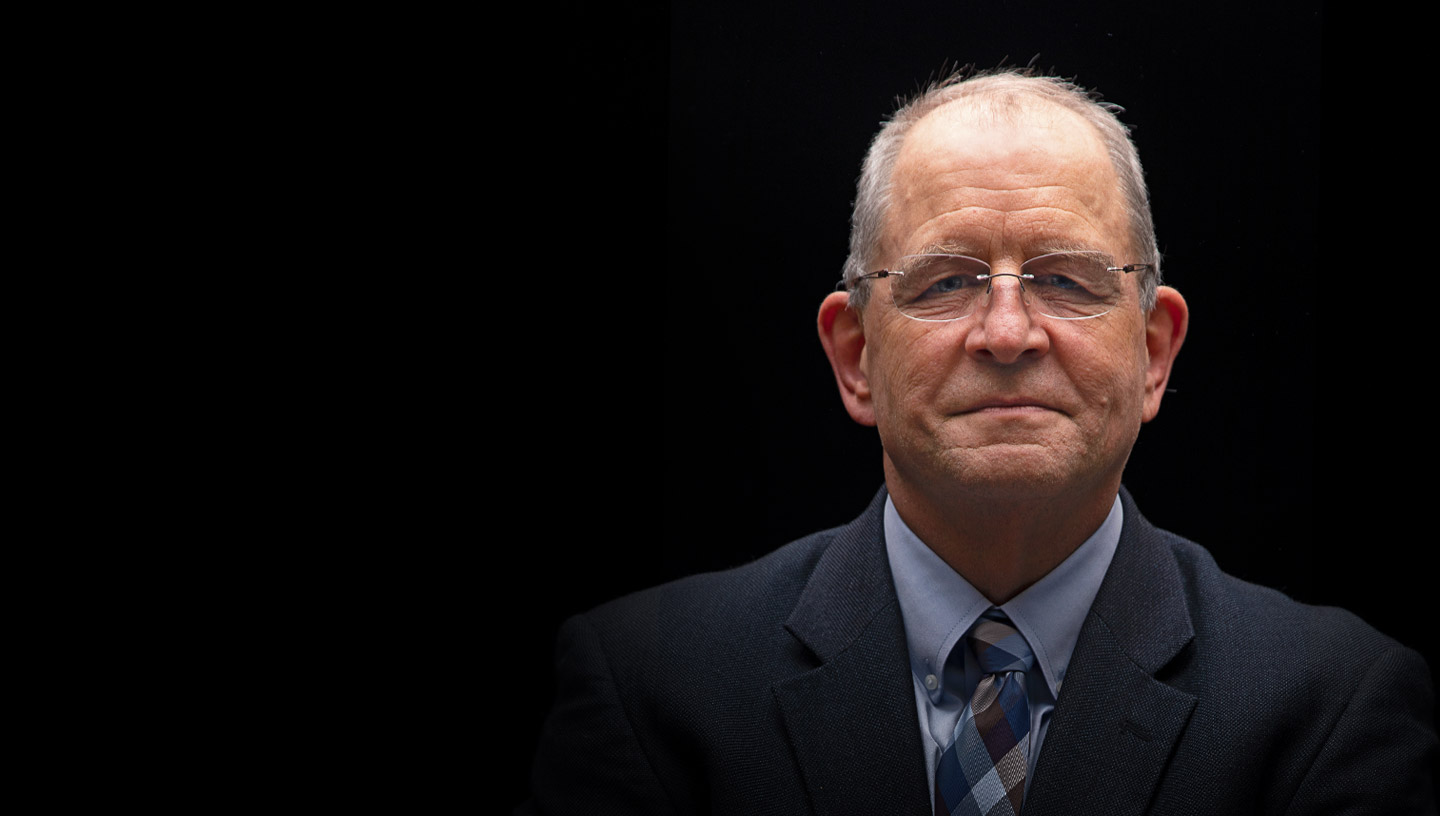

DR. MARK
DR. MARK DENISON IS USING HIS LIFE’S WORK TO SAVE LIVES DURING A GLOBAL PANDEMIC.
2020 will be known as the year of the coronavirus. But for Dr. Mark Denison, it’s been his focus for more than 30 years. Dr. Denison was the first to discover the virus’ ability to “proofread” itself for mutations, a groundbreaking revelation for the field and his driving force to research antiviral treatments that could defeat it. Thanks to Dr. Denison, we now have Remdesivir, the only FDA-approved treatment for coronavirus. For his tenacity and willingness to think outside the box for the greater good, he’s nominated for the Sanford Lorraine Cross Award.
1984
SPARKING CURIOSITY
Dr. Denison discovers a proofreading function in the coronavirus, giving it the ability to look for mistakes in its own genetic sequence.
2002
WARNING SIGNS EMERGE
The SARS outbreak (SARS-CoV) is first identified, with 774 fatalities worldwide.
2007
THE BREAKTHROUGH
Dr. Denison discovers a proofreading function in the coronavirus, giving it the ability to look for mistakes in its own genetic sequence.
2010
BUILDING BLOCKS
Dr. Denison’s lab shows that for antivirals to work against the virus, they must block the proofreading enzyme.
2012
A SECOND OUTBREAK
MERS (MERS-CoV) is first reported, leading to 866 global deaths over two years.
2014
DISCOVERING REMDESIVIR
Dr. Denison partners with Gilead Sciences and begins work with antiviral agents including Remdesivir to show their effectiveness against coronavirus.
2019
FACING A PANDEMIC
The first cases of COVID-19 are reported, leading to nearly one million global deaths and counting as the pandemic continues.
2020
HOPE FOR HOSPITALS
Remdesivir is approved for COVID-19 in emergent cases, then later expanded for moderate cases, making it the only FDA-approved treatment.
“This is real. It’s not supernatural, it’s not an opinion, and there’s science behind it that we can understand. There’s something we can do to intervene.”
DR. MARK DENISON
TAKING THE RESEARCHER’S ROAD LESS TRAVELED
When Dr. Mark Denison started his career, he didn’t know he was destined to become an authority on one of the world’s largest health threats.
“I don’t think I could spell pipette, let alone hold one, when I started,” he says. Not until he started a fellowship with Dr. Stanley Perlman did he take an interest in investigating medicine’s unanswered questions.
“I was confronted with doing the same experiment over and over again without it succeeding,” Dr. Denison says. “And then finally I found a way to make that work. I think that taught me a lot about my tenacity.”
Through a side project, Dr. Denison started studying coronaviruses – an RNA virus known for its flexibility and resilience. Though a household term today, coronaviruses weren’t widely researched in the 80s and 90s, and some scientists thought studying them was a dead end.
“There have been many points where I was on the last version of a grant,” says Dr. Denison. “I can remember at least one anecdote where a high-level scientist stood in my doorway and said, ‘You seem like a bright young man. If you just find something important to work on, it would really be useful.’”
This didn’t deter Dr. Denison, and he continued researching coronaviruses to uncover a potential weakness. In 2007, he found it.
While most RNA viruses don’t correct mutations, Dr. Denison found that coronaviruses are different. Instead, they contain a protein that acts as a proofreader, looking for mistakes so the virus doesn’t incorporate problems when it replicates. This breakthrough was huge for the virology field, as the concept of an RNA virus having a proofreader wasn’t in textbooks anywhere.
Dr. Denison’s open mind and unusual way of looking at problems helped him discover this insight where others may not have been looking.
“I like new ideas,” he says. “I like to test beyond what we’re thinking about and say, ‘why are we thinking of it this way?’”
This discovery gave Dr. Denison and his colleagues a window into how to beat the virus – by blocking its proofreading function. Next, his lab started working to find antiviral treatments that could do just that.
A LIFE’S WORK MEETS GLOBAL MOMENTS OF NEED
Dr. Denison’s search for an antiviral couldn’t have started at a better time. In 2002 and 2012, the SARs and MERS epidemics sparked early warning signs about the coronavirus threat, and Dr. Denison continued educating the field and seeking treatment options.
In 2014, he connected with Gilead Sciences, Inc., a biopharmaceutical company. After telling them about his work to find an effective antiviral, Gilead shared several drug compounds to start with, including failed Ebola and hepatitis C treatments.
“I’m pretty sure there wasn’t another lab in the world that was specifically trying to develop antivirals against coronaviruses than mine and my collaborators,” says Dr. Denison. “They (Gilead) didn’t know me…but after showing them some data from other compounds, that convinced them to let us try.”
“They sent us what are called prodrugs, 60 different types. And one of those 60 was Remdesivir.”
Remdesivir proved to be dramatically effective at knocking out the virus. So effective that it’s now the only FDA-approved treatment for severe and moderate cases of coronavirus.
Remdesivir’s effect during the COVID-19 pandemic has been immeasurable. At the start of the pandemic, hospital bed shortages and overcrowding posed a huge threat to public health.
By allowing patients to leave the hospital sooner and potentially avoid the ICU altogether, Remdesivir has eased the strain on the hospital system.
“To me it was all about hope and that light at the end of the tunnel,” says Dr. Todd Rice, an ICU physician. “Now you could say, ‘Oh, maybe there is a way out of this.’ And we can actually do something for these patients.”
For Dr. Denison, his foresight into the coronavirus threat has helped navigate a pandemic that’s taken the world by storm.
“What seemed like a miracle drug sitting on shelf ready to go in 2020 when COVID emerged was really the basis of work that started back in 2007,” he says. “So, it takes time, and it takes commitment to the process. This is way too urgent for us to hurry. We have to do this correctly.”
As COVID-19 continues to infect millions, Dr. Denison’s lab is still searching for treatments even more effective and readily available than Remdesivir. And he’s excited about the next frontier.
“For me, that’s the most meaningful thing – my ability to communicate that there is science behind this and give a clear picture of understanding for this virus.”
DR. MARK DENISON
